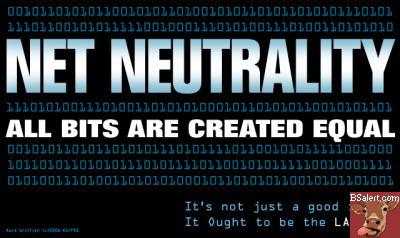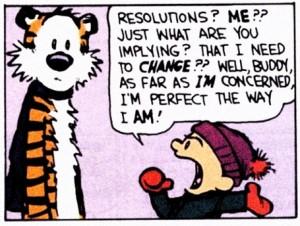|
|
Burger King Ad Promotes Something Besides Its Products: Empathy
Posted by Pile
(30347 views) |
 [Mean People] |
 It's rare when we at BSAlert call attention to a corporate ad campaign on a positive note, but the latest commercial from the most unlikely of sources, Burger King, actually tugs on the heartstrings as well as the mind of consumers in a very creative way, and it's worth sharing... It's rare when we at BSAlert call attention to a corporate ad campaign on a positive note, but the latest commercial from the most unlikely of sources, Burger King, actually tugs on the heartstrings as well as the mind of consumers in a very creative way, and it's worth sharing...It's also amusing to note that this is from the same company that several years ago launched an ad campaign that stated, "un-friend 10 people on Facebook and get a free whopper" at which point Burger King contacted each of the un-friended friends letting them know their friendship wasn't stronger than a free Whopper... so while we're not apt to completely forgive Burger King, we can appreciate their new turn... for now. | |
As corporations become more powerful and influential in our society, it becomes important to note advertisers have a choice of how they want to motivate consumers. Traditionally selfishness has been a pivotal factor in consumerism. We're happy to see that benevolence, empathy and concern for others being explored and promoted. Burger King does this in a very poignant way, not only promoting a concept but making people aware of how their choices need adjustment. According to Burger King: Scrawny. Short. Ugly. Fat. Weird. 30% of school kids worldwide are bullied each year and bullying is the #1 act of violence against young people in America today (Source: nobully.org). The BURGER KING® brand is known for putting the crown on everyone’s head and allowing people to have it their way. Bullying is the exact opposite of that. So the BURGER KING® brand is speaking up against bullying during National Bullying Prevention Month. In the BURGER KING® brand Bullying Jr. experiment, more people stood up for a bullied WHOPPER JR.® than a bullied high school Jr. Visit NoBully.org to learn how you can take a stand against bullying. | |
| Show Comments |
|
The Hamster Wheel Of Gun Violence And Citizen Helplessness
Posted by Pile
(27423 views) |
[Beating Dead Horses] [Rants] |
 It's that time of the year. Domestic terrorist shooting time. It seems to have a season, not unlike fishing or harvest time. It's that time of the year. Domestic terrorist shooting time. It seems to have a season, not unlike fishing or harvest time.Along with it comes another season: Blaming, Whining and Complaining. Will Americans actually do something or are they cursed to merely complain and flail their arms in the air helplessly? | |
 | |
The current issue of GQ magazine has an editorial by someone named Drew Magary, entitled "Las Vegas Is What Happens When America Happens" I can relate to what the author is saying, but while he crystallizes everyone's frustrations, he also epitomizes the cause of the problem: helplessness and detachment. "It’s already begun. As I’m writing this, over 50 people are dead in Vegas and already the fruitless cycle has started. There are liberals like me begging for gun control that will never come to pass (I can only look back at this post and laugh bitterly)" The definition of insanity is doing the same thing over and over and expecting different results. Yet this is what people do, over and over again. He's right. This does appear to be a characteristic of the new America, but it's not merely related to gun violence. There seems to be an ever-waning sense of personal responsibility the populace feels regarding everything bad that happens. We toss our arms up in the air and flail every now and then, but we really aren't willing to do much more than that. And every now and then we poke our heads up and get angered that the world has not changed for us like we wanted. "Because by now, I don't know what I can do to change the fundamental anatomy of America" Comments like the above can be maddening, because in reality, this guy, like all of us have been wearing the ruby slippers all along. We're more accustomed to complaining about problems than solving them, but the answers are there, right in front of us if you want to pay attention... I would submit the first step in this process is to give America an MRI. Examine at its core how it works. You don't like the laws? Rather than scream that laws need to be changed, take a good look at how laws are made, the process, by whom, how those people get in power, and develop a plan to address it? Wouldn't that be better than barking orders into cyberspace? The tea party went from nobody to completely running every branch of the government in less than 20 years. The left sat by while they took over, wallowing in their helplessness. And still, they don't want to acknowledge how brilliant their plan was? The left could follow the same pattern and win. Start local. Stay issue-oriented. Maintain solidarity with those on your side. Don't try to re-invent the wheel - pick the dominant political party you're closest aligned with and take it over - from the inside. Little by litte, one piece at a time. This is how the tea party took control. They didn't immediately demand the Bill of Rights be amended. They planted their seeds locally and nurtured them. This "outsider coming in to save us" plan continually fails. Stop doing it. The left tried this a little bit, but then gave up when everything didn't work perfectly. The right, kept going, trying, and they won. This is why they run everything now. And still, the left want to throw their arms up in the air and say "This is America. We're screwed." Really? 25% of the country took over the other 75% and the 75% are "screwed?" Awww, poor majority of Americans. WTF happened? Not our fault! Waaaaah! That's a shame. It's crazy that the smarter half of the country is so clueless. We just watched the biggest group of idiots ever in the history of America take over the country right in front of our eyes and we're like, "Durrrrrrr How could this happen?" Right now, the tea party people know exactly who they're going to vote for in the next election. They've been building local coalitions for years. The liberals.. they have no idea. They can't even name anybody who's planning to run against the republicans. But darned if they're not awesome in re-posting condemning tripe about Trump every five minutes on Facebook. Come the midterm elections next year, the right will have everything lined up to maintain power. The left will poke their heads away from their iPhones for about 10 minutes and say, "We have no chance to win. We're in a red state. Waaaaaa" and pen a few more whiny facebook posts lamenting how much everything sucks." Social media is full of temporary directors of the movie called, "America." They always appear just after a tragedy, barf out their simple solution for fixing things, and then retreat back into posting pictures of their lunch, cats or fridge artwork. "Ban guns now!" "Repeal the second amendment!" Sounds great in theory, but how are you going to do it in practice? If the voice of reason appears within these threads it's attacked for being arrogant, dismissive and condescending. Yea, I'm part of the problem, having the audacity to ask how you're going to repeal the second amendment when you can't get a law passed that says it's a bad idea to shoot someone dead for looking at you funny. I often ask what's going on? Do people really want change, or do they just want to vent? Because these arbitrarily, reactive demands appear toothless and unrealistic. It's reminiscent of children playing in a playground saying to each other, "What do you want to be when you grow up?" "I want to be a cowboy!" "I want to be a princess!" "I want to repeal the 2nd amendment!" That's amusing and poignant when you're 5 years old, but if you're 35 and you're still harping, "I want to be a princess!" Perhaps you do deserve some eye-rolls? Hey, I'm not saying don't dream big. But if you're going to demand big change, have a big plan. I'd like holodecks and faster-than-light space travel, but posting that on Facebook, unfortunately, probably doesn't get us even a millimeter closer to that goal. You say you want gun control? Great. How? Oh you live in a red state and don't want to get off your ass to campaign because you think it's futile? How conveeeeenient! Oh you think it's impossible to de-throne the republican incumbant in your district? Despite the fact that probably only 15% of the eligible voters actually voted for him? And you want to convince us you're serious and worth paying attention to when you bark out orders, but aren't willing to really work to make these things real? Perhaps one day, we as a people will accept responsibility and recognize that true change takes time, and happens in little bits? And it requires focus and dedication. If you get butthurt because someone, on your own side, on social media doesn't find your arbitrary dictate on society realistic, how are you going to deal with true adversity? I keep waiting for the losing team to start paying attention to how and why they're getting their asses kicked, but they seem to primarily enjoy wallowing and complaining. We can have change, if people care enough to work. Focus on small, incremental wins and move forward that way. I apologize if I'm too snarky and not more diplomatic, but it's very frustrating to hear concerned citizens rail on about social problems, but never gain any ground. There is a way. There is an alternative to endless complaints if you're serious. | |
| Show Comments |
|
What is Net Neutrality And Why Should You Care?
Posted by Pile
(27511 views) |
  |
 What is Net Neutrality and why should people care about it? What is Net Neutrality and why should people care about it?In a nutshell, NN is the idea that the Internet is a shared, global network that should not be tampered with at its base level. If you want to be part of the network, you have to respect the network. This means, if you want your sites to be accessible to everybody else, then you have to make sure your customers have access to the entirety of the Internet. You can't break it into pieces and show either prejudice or favoritism in determining which content can be accessed over your system. Simple as that. You want in? All or nothing. Play FAIR. Treat others the way you like to be treated. Beyond this, it's important to note that before the Internet came around, there were plenty of private networks created and run by private companies. They could do what they wanted. But the Internet was created by taxpayer money and made wide open to anybody because it was a public resource. Because nobody "owned" the Internet, it prospered and eventually became the default network. Now private companies want to take control of it and slice it into pieces and charge extra for parts, or deny you access to parts of it if the content isn't something they agree with. That's really bad. Net Neutrality opponents argue that Net Neutrality is anti-freedom-of-speech, but they are lying. What they really mean, is that they believe they should have the freedom to deny you access to content over their network, and if you don't allow it, you're denying them their rights. It's a bizarro, irrational argument. Why do some companies want Net Neutrality abolished? Simple. They can make more money charging their customers for access. They can shut down competitive Internet services so they're the only game in town. The abolishment of Net Neutrality will cost consumers more and offer them less choices. The Net Neutrality fight is split clearly along party lines. The Republicans and the Libertarian parties are in favor of abolishing Net Neutrality. Their corporate benefactors have paid them well to push a variety of narratives convincing people it's a good thing to get rid of. To them, it's about money and control. Their idea of "freedom of speech" is refusing to carry anyone else's traffic on their network if they can't monetize it the way they want. The Democrats have been the only party to consistently fight to protect the neutrality of the Internet. If you care about this issue, there is a party you can vote for that will protect it. Remember this in 2018. It's really important if you want full access to information, news and everything else. It's quite popular to say, "both parties are the same" and they both are pawns to special interests, but not all parties are equally beholden to special interests, and the Net Neutrality issue is another clear example of this. If you care about the Internet, protest, contact your representatives. If you don't want to have to keep doing this over and over, vote for people who have a clear respect for the Internet. Pay attention to which parties are easier to reach and more attentive to your needs. Some corporations are being deceitful. You may on occasion hear that AT&T or Verizon is in favor of Net Neutrality. In reality, they and other large providers have spent millions to shut it down. Now they're muddying the waters trying to re-define what Net Neutrality means. If they can't get it abolished, then they'll write their own series of bills that re-defines what NN is, and includes the loopholes they want to filter and control traffic on their network. No matter what they say, the large providers are not friends of Net Neutrality. Beware of ANY legislation they propose which supposedly "protects" the sanctity of the Internet. VOTE IN 2018! | |
Additional references: Democrats vs Republicans: The Battle for Net Neutrality Democrats Introduce Open Internet Preservation Act To Restore Net Neutrality Democrats Are Bracing For A Big, Public Fight To Protect Net Neutrality | |
| Show Comments |
|
Ten Commandment Statues Are Really Taxpayer Money Grabs
Posted by Pile
(25923 views) |
 |
 Within days of the controversial Ten Commandments monument erected on the courthouse grounds in Arkansas, it was destroyed by an irate citizen. Beyond the obvious controversy of the state endorsing a particular flavor of religion, what seems to be going on with municipalities continuing to put up these displays when there's overwhelming evidence they will be rules unconstitutional and taken down? Within days of the controversial Ten Commandments monument erected on the courthouse grounds in Arkansas, it was destroyed by an irate citizen. Beyond the obvious controversy of the state endorsing a particular flavor of religion, what seems to be going on with municipalities continuing to put up these displays when there's overwhelming evidence they will be rules unconstitutional and taken down?Filed public documents in the Akansas case make it very clear: This is a thinly-veiled attempt to funnel taxpayer money to select private religious legal groups... | |
In the Arkansas case, legislation was enacted in 2015 proposing the erection of the monument. But what's interesting, is in the legislation, a dictate is made to designate an outside, third party legal team, the "Liberty Legal Institute." The monument under this subsection shall be exempt 14 from §§ 22-3-301 et seq. and 22-3-501 et seq. 15 (c) In the event that the legality or constitutionality of the 16 monument under subsection (b) of this section is challenged in a court of 17 law, the Attorney General may: 18 (1) Prepare and present a legal defense of the monument; or 19 (2)(A) Request that Liberty Legal Institute prepare and present 20 a legal defense of the monument. 21 (B) A request that Liberty Legal Institute prepare and 22 present a legal defense of the monument shall not be subject to § 25-16-702. 23 (d) The placement of the monument under this section shall not be 24 construed to mean that the State of Arkansas favors any particular religion 25 or denomination over others. Details: http://www.arkleg.state.ar.us/assembly/2015/2015R/Acts/Act1231.pdf In the end, the state loses in court, but the Liberty Legal Institute wins and gets paid well. It's safe to assume that same organization probably also contributes to various politicians election campaign efforts. To add further insult to injury, the Arkansas man who destroyed the monuments, contrary to what right wing media are claiming, is not an atheist, Muslim or secularist. He's a Republican Trump supporter who is a devout Christian. | |
| Show Comments |
|
The Difference Between An Imperfect Friend And A Deadly Enemy
Posted by Pile
(27105 views) |
 [Activists] |
 Bill Maher on the myth of the "lesser of two evils" which tends to turn off liberal voters, especially those who were butthurt that Bernie did not get the nomination, and instead stayed home instead of voting for the Democratic nominee. We all have reaped what they sowed, and Bill has something to say about it... Bill Maher on the myth of the "lesser of two evils" which tends to turn off liberal voters, especially those who were butthurt that Bernie did not get the nomination, and instead stayed home instead of voting for the Democratic nominee. We all have reaped what they sowed, and Bill has something to say about it... | |
| Show Comments |
|
Kellyann Conway's Masterful Use of Bullshit Exposed
Posted by Pile
(27737 views) |
[Beating Dead Horses] |
 Kellyanne Conway has a supernatural ability to derail any interview that paints Donald Trump in a negative light. How does she do it? Kellyanne Conway has a supernatural ability to derail any interview that paints Donald Trump in a negative light. How does she do it? | |
| Show Comments |
|
The Netherlands Produce A Welcome Video For Trump
Posted by Pile
(25085 views) |
 [Vanity] |
 The first nation to get on board the Trump train is the Netherlands, hoping to ingratiate themselves with the new American leader in a big way. Check it out! The first nation to get on board the Trump train is the Netherlands, hoping to ingratiate themselves with the new American leader in a big way. Check it out! | |
| Show Comments |
|
The Science (and Company) Behind The Trump and Brexit Elections
Posted by Pile
(29268 views) |
 [Psychology] |
 Did you know there's a single company behind some of the most controversial elections in modern history? An ad company that has been using Facebook and "psychometrics" to accurately predict, classify and manipulate people and elections? Did you know there's a single company behind some of the most controversial elections in modern history? An ad company that has been using Facebook and "psychometrics" to accurately predict, classify and manipulate people and elections? | |
Psychometrics and the (counter)revolution in marketing that is helping bring fascism to power around the world Note: The following is an unauthorized translation of a December 2016 article that caused quite a stir in the German-language press. Das Magazin (Zurich) occupies a respected position within the German-language cultural and literary media landscape, functionally similar to (though perhaps not quite as prominent as) The New Yorker, and this work by investigative reporters Hannes Grassegger and Mikael Krogerus got a lot of attention—and generated some controversy, for apparently having scooped the English-language media with sensational observations about 2016’s most sensational story, the campaign and electoral victory of a fascist dictator in the United States. Perhaps for this reason, the article has not appeared in translation in (or even had its investigative threads taken up by) English-language media outlets, even after nearly two months. Antidote presents, therefore, our own preemptive translation to fill this gap. We trust the skill of the reporters who wrote it and the veracity of their claims (which are verifiable by anyone with a search engine—we have embedded links where appropriate), and we question why this particular synthesis of public information is not being made available to non-German-speaking readers by outlets with more reach and respectability than us dirty DIY dicks. On the occasion of this article’s authorized wider release in English, should that come to pass, we will consider removing this post if we are asked nicely. Until then: Enjoy! “I just showed that the bomb was there.” By Hannes Grassegger and Mikael Krogerus for Das Magazin (Zurich) 3 December 2016 (original post) Psychologist Michal Kosinski developed a method of analyzing people’s behavior down to the minutest detail by looking at their Facebook activity—thus helping Donald Trump to victory. On November 9th, around 8:30 in the morning, Michal Kosinski awoke in his hotel room in Zurich. The 34-year-old had traveled here to give a presentation to the Risk Center at the ETH [Eidgenössische Technische Hochschule or Federal Institute of Technology, Zurich] at a conference on the dangers of Big Data and the so-called digital revolution. Kosinski gives such presentations all over the world. He is a leading expert on psychometrics, a data-driven offshoot of psychology. Turning on the television this morning in Zurich, he saw that the bomb had gone off: defying the predictions of nearly every leading statistician, Donald J. Trump had been elected president of the United States of America. Kosinski watched Trump’s victory celebration and the remaining election returns for a long while. He suspected that his research could have had something to do with the result. Then he took a deep breath and turned off the television. On the same day, a little-known British company headquartered in London issued a press release: “We are thrilled that our revolutionary approach to data-driven communications played such an integral part in president-elect Donald Trump’s extraordinary win,” Alexander James Ashburner Nix is quoted as saying. Nix is British, 41 years old, and CEO of Cambridge Analytica. He only appears in public in a tailored suit and designer eyeglasses, his slightly wavy blond hair combed back. The meditative Kosinski, the well-groomed Nix, the widely grinning Trump—one made this digital upheaval possible, one carried it out, and one rode it to power. How dangerous is Big Data? Anyone who didn’t spend the last five years on the moon has heard the term Big Data. The emergence of Big Data has meant that everything we do, online or off-, leaves digital traces. Every purchase with a card, every Google search, every movement with a cellphone in your pocket, every “like” gets stored. Especially every “like.” For a while it wasn’t entirely clear what any of this data would be good for, other than showing us ads for blood pressure medication in our Facebook feeds after we google “high blood pressure.” It also wasn’t entirely clear whether or in what ways Big Data would be a threat or a boon to humanity. Since November 9th, 2016, we know the answer. Because one and the same company was behind Trump’s online ad campaigns and late 2016’s other shocker, the Brexit “Leave” campaign: Cambridge Analytica, with its CEO Alexander Nix. Anyone who wants to understand the outcome of the US elections—and what could be coming up in Europe in the near future—must begin with a remarkable incident at the University of Cambridge in 2014, in Kosinski’s department of psychometrics. Psychometrics, sometimes also known as psychography, is a scientific attempt to “measure” the personality of a person. The so-called Ocean Method has become the standard approach. Two psychologists were able to demonstrate in the 1980s that the character profile of a person can be measured and expressed in five dimensions, the Big Five: Openness (how open are you to new experiences?), Conscientiousness (how much of a perfectionist are you?), Extroversion (how sociable are you?), Agreeableness (how considerate and cooperative are you?), and Neuroticism (how sensitive/vulnerable are you?). With these five dimensions (O.C.E.A.N.), you can determine fairly precisely what kind of person you are dealing with—her needs and fears as well as how she will generally behave. For a long time, however, the problem was data collection, because to produce such a character profile meant asking subjects to fill out a complicated survey asking quite personal questions. Then came the internet. And Facebook. And Kosinski. A new life began in 2008 for the Warsaw-born student Michal Kosinski when he was accepted to the prestigious University of Cambridge in England to work in the Cavendish Laboratory at the Psychometrics Center, the first-ever psychometrics laboratory. With a fellow student, Kosinski created a small app for Facebook (the social media site was more straightforward then than it is now) called MyPersonality. With MyPersonality, you could answer a handful of questions from the Ocean survey (“Are you easily irritated?” – “Are you inclined to criticize others?”) and receive a rating, or a “Personality Profile” consisting of traits defined by the Ocean method. The researchers, in turn, got your personal data. Instead of a couple dozen friends participating, as initially expected, first hundreds, then thousands, then millions of people had bared their souls. Suddenly the two doctoral students had access to the then-largest psychological data set ever produced. The process that Kosinski and his colleagues developed over the years that followed is actually quite simple. First surveys are distributed to test subjects—this is the online quiz. From the subjects’ responses, their personal Ocean traits are calculated. Then Kosinski’s team would compile every other possible online data point of a test subject—what they’ve liked, shared, or posted on Facebook; gender, age, and location. Thus the researchers began to find correlations, and began to see that amazingly reliable conclusions could be drawn about a person by observing their online behavior. For example, men who “like” the cosmetics brand MAC are, to a high degree of probability, gay. One of the best indicators of heterosexuality is liking Wu-Tang Clan. People who follow Lady Gaga, furthermore, are most probably extroverted. Someone who likes philosophy is more likely introverted. Kosinski and his team continued, tirelessly refining their models. In 2012, Kosinski demonstrated that from a mere 68 Facebook likes, a lot about a user could be reliably predicted: skin color (95% certainty), sexual orientation (88% certainty), Democrat or Republican (85%). But there’s more: level of intellect; religious affiliation; alcohol-, cigarette-, and drug use could all be calculated. Even whether or not your parents stayed together until you were 21 could be teased out of the data. How good a model is, however, depends on how well it can predict the way a test subject will answer certain further questions. Kosinski charged ahead. Soon, with a mere ten “likes” as input his model could appraise a person’s character better than an average coworker. With seventy, it could “know” a subject better than a friend; with 150 likes, better than their parents. With 300 likes, Kosinski’s machine could predict a subject’s behavior better than their partner. With even more likes it could exceed what a person thinks they know about themselves. The day he published these findings, Kosinski received two phonecalls. One was a threat to sue, the other a job offer. Both were from Facebook. Only Visible to Friends In the meantime, Facebook has introduced the differentiation between public and private posts. In “private” mode, only one’s own friends can see what one likes. This is still no obstacle for data-collectors: while Kosinski always requests the consent of the Facebook users he tests, many online quizzes these days demand access to private information as a precondition to taking a personality test. (Anyone who is not overly concerned about their private information and who wants to get assessed according to their Facebook likes can do so at Kosinski’s website, and then compare the results to those of a “classic” Ocean survey here). It’s not just about likes on Facebook. Kosinski and his team have in the meantime figured out how to sort people according to Ocean criteria based only on their profile pictures. Or according to the number of their social media contacts (this is a good indicator of extroversion). But we also betray information about ourselves when we are offline. Motion sensors can show, for example, how fast we are moving a smartphone around or how far we are traveling (correlates with emotional instability). A smartphone, Kosinski found, is in itself a powerful psychological survey that we, consciously or unconsciously, are constantly filling out. Above all, though—and this is important to understand—it also works another way: using all this data, psychological profiles can not only be constructed, but they can also be sought and found. For example if you’re looking for worried fathers, or angry introverts, or undecided Democrats. What Kosinski invented, to put it precisely, is a search engine for people. And he has been getting more and more acutely aware of both the potential and the danger his work presents. The internet always seemed to him a gift from heaven. He wants to give back, to share. Information is freely reproducible, copyable, and everyone should benefit from it. This is the spirit of an entire generation, the beginning of a new era free of the limits of the physical world. But what could happen, Kosinski asked himself, if someone misused his search engine in order to manipulate people? His scientific work [e.g.] began to come with warnings: these prediction techniques could be used in ways that “pose a threat to an individual’s well-being, freedom, or even life.” But no one seemed to understand what he meant. Around this time, in early 2014, a young assistant professor named Aleksandr Kogan approached Kosinski. He said he had received an inquiry from a company interested in Kosinski’s methods. They apparently wanted to psychometrically measure the profiles of ten million American Facebook users. To what purpose, Kogan couldn’t say: there were strict secrecy stipulations. At first, Kosinski was ready to accept—it would have meant a lot of money for his institute. But he hesitated. Finally Kogan divulged the name of the company: SCL, Strategic Communications Laboratories. Kosinski googled them [so did Antidote. Here. —ed.]: “We are a global election management agency,” said the company website [really, the website has even creepier language on it than that. “Behavioral change communication”? Go look already]. SCL offers marketing based on a “psychographic targeting” model. With an emphasis on “election management” and political campaigns? Disturbed, Kosinski clicked through the pages. What kind of company is this? And what do they have planned for the United States? What Kosinski didn’t know at the time was that behind SCL there lay a complex business structure including ancillary companies in tax havens, as the Panama Papers and Wikileaks revelations have since shown. Some of these had been involved in political upheavals in developing countries; others had done work for NATO, developing methods for the psychological manipulation of the population in Afghanistan. And SCL is also the parent company of Cambridge Analytica, this ominous Big Data firm that managed online marketing for both Trump and the Brexit “Leave” campaign. Kosinski didn’t know any of that, but he had a bad feeling: “The whole thing started to stink,” he remembers. Looking into it further, he discovered that Aleksandr Kogan had secretly registered a company to do business with SCL. A document obtained by Das Magazin confirms that SCL learned about Kosinski’s methods through Kogan. It suddenly dawned on Kosinski that Kogan could have copied or reconstructed his Ocean models in order to sell them to this election-manipulating company. He immediately broke off contact with him and informed the head of his institute. A complicated battle ensued within Cambridge University. The institute feared for its reputation. Aleksandr Kogan moved to Singapore, got married, and began calling himself Dr. Spectre. Michal Kosinski relocated to Stanford University in the United States. For a year or so it was quiet. Then, in November 2015, the more radical of the two Brexit campaigns (leave.eu, led by Nigel Farage) announced that they had contracted with a Big Data firm for online marketing support: Cambridge Analytica. The core expertise of this company: innovative political marketing, so-called microtargeting, on the basis of the psychological Ocean model. Kosinski started getting emails asking if he had had anything to do with it—for many, his is the first name to spring to mind upon hearing the terms Cambridge, Ocean, and analytics in the same breath. This is when he heard of Cambridge Analytica for the first time. Appalled, he looked up their website. His methods were being deployed, on a massive scale, for political purposes. After the Brexit vote in July the email inquiries turned to insults and reproaches. Just look what you’ve done, friends and colleagues wrote. Kosinski had to explain over and over again that he had nothing to do with this company. First Brexit, Then Trump September 19th, 2016: the US presidential election is approaching. Guitar riffs fill the dark blue ballroom of the Grand Hyatt Hotel in New York: CCR’s “Bad Moon Rising.” The Concordia Summit is like the WEF in miniature. Decision makers from all over the world are invited; among the guests is Johann Schneider-Ammann [then nearing the end of his year term as president of Switzerland’s governing council]. A gentle women’s voice comes over the PA: “Please welcome Alexander Nix, Chief Executive Officer of Cambridge Analytica.” A lean man in a dark suit strides towards the center of the stage. An attentive quiet descends. Many in the room already know: this is Trump’s new Digital Man. “Soon you’ll be calling me Mr. Brexit,” Trump had tweeted cryptically a few weeks before. Political observers had already been pointing out the substantial similarities between Trump’s agenda and that of the rightwing Brexit camp; only a few had noticed the connection to Trump’s recent engagement with a largely unknown marketing company: Cambridge Analytica. Before then, Trump’s online campaign had consisted more or less of one person: Brad Parscale, a marketing operative and failed startup founder who had built Trump a rudimentary website for $1,500. The 70-year-old Trump is not what one would call an IT-whiz; his desk is unencumbered by a computer. There is no such thing as an email from Trump, his personal assistant once let slip. It was she who persuaded him to get a smartphone—the one from which he has uninhibitedly tweeted ever since. Hillary Clinton, on the other hand, was relying on the endowment of the first social media president, Barack Obama. She had the Democratic Party’s address lists, collected millions of dollars over the internet, received support from Google and Dreamworks. When it became known in June 2016 that Trump had hired Cambridge Analytica, Washington collectively sneered. Foreign noodlenecks in tailored suits who don’t understand this country and its people? Seriously? “Ladies and gentlemen, honorable colleagues, it is my privilege to speak to you today about the power of Big Data and psychographics in the electoral process.” The Cambridge Analytica logo appears behind Alexander Nix—a brain, comprised of a few network nodes and pathways, like a subway map. “It’s easy to forget that only eighteen months ago Senator Cruz was one of the less popular candidates seeking nomination, and certainly one of the more vilified,” begins the blond man with his British diction that produces the same mixture of awe and resentment in Americans that high German does the Swiss. “In addition, he had very low name recognition; only about forty percent of the electorate had heard of him.” Everyone in the room was aware of the sudden rise, in May 2016, of the conservative senator within the Republican field of presidential candidates. It was one of the strangest moments of the primary campaign. Cruz had been the last of a series of Republican opponents to come out of nowhere with what looked like a credible challenge to frontrunner Trump. “How did he do this?” continues Nix. Cambridge Analytica had begun engaging with US elections towards the end of 2014, initially to advise the Republican Ted Cruz, and paid by the secretive American tech billionaire Robert Mercer. Up to that point, according to Nix, election campaign strategy had been guided by demographic concepts. “But this is a really ridiculous idea, the idea that all women should receive the same message because of their gender; or all African-Americans because of their race.” The Hillary Clinton campaign team was still operating on precisely such amateurish assumptions—Nix need not even mention—which divide the electorate up into ostensibly homogeneous groups…exactly the same way as all the public opinion researchers who predicted a Clinton victory did. Nix clicks to the next slide: five different faces, each representing a personality profile. It is the Ocean model. “At Cambridge, we’ve rolled out a long-form quantitative instrument to probe the underlying traits that inform personality. This is the cutting edge in experimental psychology.” It is now completely silent in the hall. “By having hundreds and hundreds of thousands of Americans undertake this survey, we were able to form a model to predict the personality of every single adult in the United States of America.” The success of Cambridge Analytica’s marketing arises from the combination of three elements: this psychological behavioral analysis of the Ocean model, Big Data evaluation, and ad targeting. Ad targeting is personalized advertisement tailored as precisely as possible to the character of a single consumer. Nix explains forthrightly how his company does this (the presentation can be viewed on YouTube). From every available source, Cambridge Analytica buys up personal data: “What car you drive, what products you purchase in shops, what magazines you read, what clubs you belong to.” Voter and medical records. On the screen behind him are displayed the logos of global data traders like Acxiom and Experian—in the United States nearly all personal consumer data is available for purchase. If you want to know, for example, where Jewish women live, you can simply buy this information. Including telephone numbers. Now Cambridge Analytica crosschecks these data sets with Republican Party voter rolls and online data such as Facebook likes, and constructs an Ocean personality profile. From a selection of digital signatures there suddenly emerge real individual people with fears, needs, and interests—and home addresses. The process is identical to the models that Michal Kosinski developed. Cambridge Analytica also uses IQ-Quiz and other small Ocean test apps in order to gain access to the powerful predictive personal information wrapped up in the Facebook likes of users. And Cambridge Analytica is doing precisely what Kosinski had warned about. They have assembled psychograms for all adult US citizens, 220 million people, and have used this data to influence electoral outcomes. Nix clicks to the next slide. “This is a data dashboard that we prepared for the Cruz campaign for the Iowa caucus. It looks intimidating, but it’s actually very simple.” On the left, graphs and diagrams; on the right, a map of Iowa, where Cruz had done surprisingly well in the caucuses. On this map, hundreds of thousands of tiny dots, red and blue. Nix begins to narrow down search criteria to a category of Republican caucus-goers he describes as a “persuasion” group, whose common Ocean personality profile and home locations are now visible, a smaller set of people to whom advertisement can be more effectively tailored. Ultimately the criteria can be narrowed to a single individual, along with his name, age, address, interests, and political leanings. How does Cambridge Analyica approach this person with political messaging? Earlier in the presentation, using the example of the Second Amendment, Nix showed two variations on how certain psychographic profiles are spoken to differently. “For a highly Neurotic and Conscientious audience, you’re going to need a message that is both rational and fear-based: the threat of a burglary and the ‘insurance policy’ of a gun is very persuasive.” A picture on the left side of the screen shows a gloved hand breaking a window and reaching for the inside door handle. On the right side, there is a picture of a man and child silhouetted against a sunset in tall grass, both with rifles, obviously duck hunting: “for a Closed and Agreeable audience, people who care about traditions and habits and family and community, talking about these values is going to be much more effective in communicating your message.” How to Keep Clinton Voters Away Trump’s conspicuous contradictions and his oft-criticized habit of staking out multiple positions on a single issue result in a gigantic number of resulting messaging options that creates a huge advantage for a firm like Cambridge Analytica: for every voter, a different message. Mathematician Cathy O’Neil had already observed in August that “Trump is like a machine learning algorithm” that adjusts to public reactions. On the day of the third presidential debate between Trump and Clinton, Trump’s team blasted out 175,000 distinct variations on his arguments, mostly via Facebook. The messages varied mostly in their microscopic details, in order to communicate optimally with their recipients: different titles, colors, subtitles, with different images or videos. The granularity of this message tailoring digs all the way down to tiny target groups, Nix explained to Das Magazin. “We can target specific towns or apartment buildings. Even individual people.” In the Miami neighborhood of Little Haiti, Cambridge Analytica regaled residents with messages about the failures of the Clinton Foundation after the 2010 earthquake in Haiti, in order to dissuade them from turning out for Clinton. This was one of the goals: to get potential but wavering Clinton voters—skeptical leftists, African-Americans, young women—to stay home. To “suppress” their votes, as one Trump campaign staffer bluntly put it. In these so-called dark posts (paid Facebook ads which appear in the timelines only of users with a particular suitable personality profile), African-Americans, for example, are shown the nineties-era video of Hillary Clinton referring to black youth as “super predators.” “Blanket advertising—the idea that a hundred million people will receive the same piece of direct mail, the same television advert, the same digital advert—is dead,” Nix begins to wrap up his presentation at the Concordia Summit. “My children will certainly never understand this concept of mass communication. Today, communication is becoming ever increasingly targeted. “The Cruz campaign is over now, but what I can tell you is that of the two candidates left in this election, one of them is using these technologies. And it’s going to be very interesting to see how they impact the next seven weeks. Thank you.” With that, he exits the stage. It is not knowable just to what extent the American population is being targeted by Trump’s digital troopers—because they seldom attack through the mainstream broadcast media, but rather mostly with highly personalized ads on social media or through digital cable. And while the Clinton team sat back in the confidence that it was safe with its demographic calculations, a new crew was moving into the Trump online campaign headquarters in San Antonio, Texas, as Bloomberg journalist Sasha Issenberg noted with surprise after a visit. The Cambridge Analytica team, apparently just a dozen people, had received around $100,000 from Trump in July; in August another $250,000; five million in September. Altogether, says Nix, they took in around fifteen million. And the company took even more radical measures: starting in July 2016, a new app was prepared for Trump campaign canvassers with which they could find out the political orientation and personality profile of a particular house’s residents in advance. If the Trump people ring a doorbell, it’s only the doorbell of someone the app has identified as receptive to his messages, and the canvassers can base their line of attack on personality-specific conversation guides also provided by the app. Then they enter a subject’s reactions to certain messaging back into the app, from where this new data flows back to the control rooms of Cambridge Analytica. The company divided the US population into 32 personality types, and concentrated on only seventeen states. And just as Kosinski had determined that men who like MAC cosmetics on Facebook are probably gay, Cambridge Analytica found that a predeliction for American-produced cars is the best predictor of a possible Trump voter. Among other things, this kind of knowledge can inform Trump himself which messages to use, and where. The decision to focus candidate visits in Michigan and Wisconsin over the final weeks of the campaign was based on this manner of data analysis. The candidate himself became an implementation instrument of the model. What is Cambridge Analytica Doing in Europe? How great an influence did these psychometric methods have on the outcome of the election? Cambridge Analytica, when asked, did not want to disclose any documentation assessing the effectiveness of their campaign. It is possible that the question cannot be answered at all. Still, some indicators should be considered: there is the fact that Ted Cruz, thanks to the help of Cambridge Analytica, rose out of obscurity to become Trump’s strongest competitor in the primaries; there is the increase in rural voter turnout; there is the reduction, compared to 2008 and 2012, in African-American voter participation. The circumstance of Trump having spent so little money on advertising could also speak for the effectiveness of personality-specific targeting, as could the fact that three quarters of his marketing budget was spent in the digital realm. Facebook became his ultimate weapon and his best canvasser, as a Trump staffer tweeted. In Germany, the rightwing upstart party Alternative für Deutschland (AfD) may like the sound of this, as they have more Facebook friends than Merkel’s Christian Democrats (CDU) and the Social Democrats (SPD) combined. It is therefore not at all the case, as is so often claimed, that statisticians lost this election because their polls were so faulty. The opposite is true: statisticians won this election. It was just certain statisticians, the ones using the new method. It is a cruel irony of history that Trump, such a detractor of science, won the election thanks to science. Another big winner in the election was Cambridge Analytica. Steve Bannon, a Cambridge Analytica board member and publisher of the ultra-rightwing online site Breitbart News, was named Trump’s chief strategist. Marion Maréchal-Le Pen, ambitious Front National activist and niece of the presidential candidate, has tweeted that she has accepted the firm’s invitation to collaborate. In an internal company video, there is a live recording of a discussion entitled “Italy.” Alexander Nix confirms that he is in the process of client acquisition, worldwide. They have received inquiries out of Switzerland and Germany. Kosinski has been observing all of this from his office at Stanford. After the election, the university was in an uproar. Kosinski responded to the developments with the most powerful weapon available to researchers: a scientific analysis. Along with his research colleague Sandra Matz, he conducted a series of tests that will soon be published. The first results seen by Das Magazin are unsettling: psychological targeting, as Cambridge Analytica deployed it, increases the clickthru rate on Facebook ads by more than sixty percent. And the so-called conversion rate (the term for how likely a person is to act upon a personally-tailored ad, i.e. whether they buy a product or, yes, go vote) increases by a staggering 1400 percent.* The world has been turned upside down. The Brits are leaving the EU; Trump rules America. It all began with one man, who indeed tried to warn of the danger, and who still gets accusatory emails. “No,” says Kosinski quietly, shaking his head, “this is not my fault. I did not build the bomb. I just showed that it was there.” Translated by Antidote | |
Source | |
| Show Comments |
|
Happy New Year! Who Are YOU Going To Hate In 2017?
Posted by Pile
(24965 views) |
[BSAlert *exclusive*] [Sociology] |
 2017: Resolutions, OUT. Enemies, IN. 2017: Resolutions, OUT. Enemies, IN.In the past, people picked a new year's resolution. That seems kinda passe now. The last few years, I think whether knowingly or not, the new mantra is, "Pick your enemy." What are you going to hate next year? Immigrants? The Federal Reserve Bank? Liberals? Conservatives? Russia? Congress? Blacks? China? Abortion? Muslims? Christians? Atheists? White male privilege? Obama? The Two-Party-System? Cops? Trump? The Electoral College? The UN? Guns? Hillary? Environmentalists? ISIS? Big Banks? Rape Culture? Unions? We all do it whether we realize it or not. "Hate" is big business. Hate is the easiest emotion in the world to turn on. It's always there like a seasoned wick ready to be ignited by the slightest spark. Hate can turn even the laziest slacktivist into an online-petition-signing maniac; a Facebook-meme-posting army of one! Good luck "love" and "hope" with your teeny tiny little heart and smileyface emoticons. You're no match for hate. So who and what's worthy of your hate in 2016? Let's discuss.. | |
The common enemy for the past few years has been "government" in general. Government makes a great enemy because it's so massive there are always unsavory examples of its works, no matter how atypical, that can be cited out of context to prove how useless it is. Bonus points for the head of government (in the last 8 years) also being a despised minority by more than 1/4 of the populace. Excellent job America. You've succeeded in vilifying the one entity uniquely tasked with protecting you and your resources! Hope it made you feel better! I think as a culture, America has to have an enemy. It feels helpless without some direction in which to focus the mass of its personal dissatisfaction in a way as to avoid self-reflection. So like it or not, we need enemies. I've always avoided simmering the hate recipe. But like it or not, it's quite palatable to the masses and unavoidable, so I'm going to suggest at least we pick a worthy adversary that is genuinely deserving of the honor: CORPORATIONS. I think 2017 should be the year we recognize who's really turning us against each other. Who makes politicians crooked. Who commands government to do things people hate? Who poisons our air and water? Who makes us spend three hours of our time reminding them they made a mistake on our bill? Who denies us healthcare because it's not profitable for their shareholders? Who sells us every manner of foreign-made plastic crap we don't need, that doesn't work as advertised? Who incessantly tells us we're inadequate, inferior, not-attractive-enough, too-skinny, too-fat, too hairy, not hairy enough, low-energy, flaccid, uncomfortable, unsatisfied, don't pee fast enough, don't cook fast enough, don't eat enough, don't smell good enough, and don't make enough money or have enough stuff? Who is the real cause of jobs being lost and outsourcing? Corporations. Who has huge networks of media that wants to above all, make us fearful and submissive? Corporations. Who spends huge amounts of time telling us they are the best, and everybody else sucks? Corporations. Who profits at the expense of the loss of civil rights? Corporations. Who profits at the expense of peoples' health and well being? Corporations. Who is, at this very moment, trying to tell you, your fellow man is the enemy? Corporations. If you're sliding down this hill. If 2017 is going to be the year of "payback", let's get our targeting sequencers properly calibrated America. | |
| Show Comments |
|
One Company Controls Almost The Entire Eyeglass Market
Posted by Pile
(25186 views) |
  |
 When you see all those brands, all those different stores, outlets and eyecare companies, you think, "competition" right? Not exactly. What if I told you there was one company that pretty much had a monopoly on the entire market? If you don't wear glasses or sunglasses, then I guess this won't apply to you... When you see all those brands, all those different stores, outlets and eyecare companies, you think, "competition" right? Not exactly. What if I told you there was one company that pretty much had a monopoly on the entire market? If you don't wear glasses or sunglasses, then I guess this won't apply to you... | |
| Show Comments |
| 10 Articles displayed. Show More Articles. |


 Bumper Sticker Store
Bumper Sticker Store



